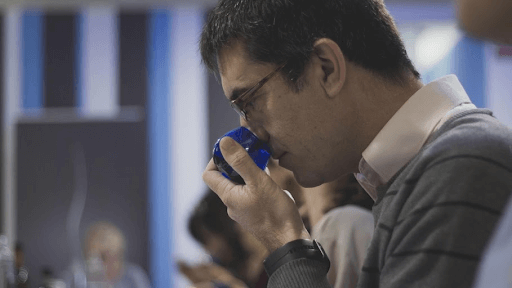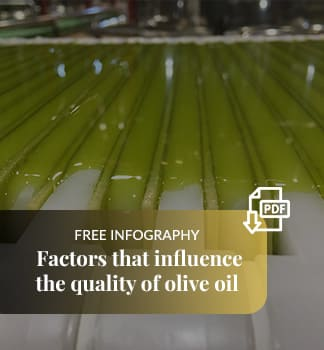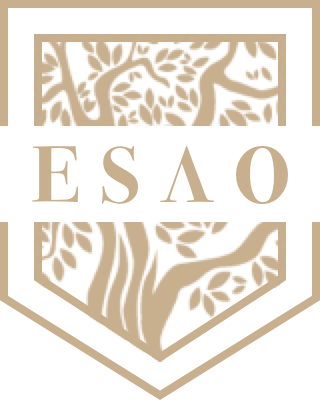Listen to this article
The olive oil sector is increasingly professionalized and with a higher business volume. Companies that are usually dedicated to sectors other than olive oil are taking their sights towards the olive oil business. Large business groups are seeing an investment opportunity and a guarantee of stability in the olive oil industry.
During the pandemic, an increase in the consumption of olive oil, as well as organic products, has been observed. There is a growing concern about the consumption of healthy products. Health care and attention have become the axes of today's society.
The agri-food sector is undoubtedly a priority in investment funds. Food is the basis of the functioning of a society with an increasing evolution of its population.
Recent studies in the agri-food field worldwide, have as common conclusions:
1.- Concentration of the offer in a few hands.
2.- Increase in investments.
3.- Increasing distance between production and consumption.
The olive oil industry is complex. Fluctuations in production lead to price fluctuations, this phenomenon being the protagonist of an irregular trend between supply and demand, which in turn causes greater instability.
In turn, there is a marked distance between the producer and the consumer, with all the agents involved in the intermediate steps being those that obtain the greatest benefit and, in turn, those that offer the least transparency.
Intervening Agents
In the olive oil business, the agents involved are of very different profiles, despite the fact that they all have the same objective.
We find ourselves starting at the base with:
1.- The owner of the olive grove.
At times, the olive grove will be in full production, at other times, it will be abandoned and at other times it will be transferred to a third party to manage it.
Olive grove owner pruning. ESAO Image Bank
2.- The dealer of olive trees and olive groves.
Olive groves and olive farms have so many peculiarities that they are managed by dealers specialized in these purchases. The availability of water, the plantation framework, the number of olive trees, their age, the variety of olives, are, among other criteria, those that must be taken into account for the sale of olive groves.
3.-The mill or cooperative that processes the olives.
Here we are talking both about the oil mills that process their own olives, as if they are maquilas, that is, that carry out the production of oil to third parties, as well as cooperatives, which are associated to have a common oil mill where they grind all the olives of the partners. In this link we differentiate if the interested party wants to produce this or that quality within the virgin olive oil.
Olive Oil Mill. ESAO Image bank
4.- Companies dedicated to the removal of by-products
Byproducts such as pomace, alperujos, pruning remains, bone, etc.
5.- Marketing
Then we come across marketing. We have from those who sell their carafes, after the previous liquidation that they have made with their cooperative or oil mill, those who sell directly through their commercial bottled oil, there is the figure of the broker, who will normally work in bulk, we have the marketing cooperatives, which They concentrate all the supply of their cooperatives and exclusively manage the sale of their oils, we have bottling companies that are only dedicated to the commercialization of third-party oils under their own brands such as bottling, we have distributors and importers, who, depending on the offer and Demand will go looking for the best qualities at the lowest possible price, facing a hard work selecting oils that have optimal physicochemical and sensorial analytics.
6.- Associations
We have countless associations that bring together farmers, packers, producers, cooperatives, marketers... all undoubtedly in pursuit of their interests, on very different occasions among all of them despite the fact that they should all have the same objective .
And, in this way, we could continue with an infinity of intervening agents in the olive oil industry.
Olive Oil Expert
As we can see, it is a sector where, if you are part of it or want to be part of it, you have to be very prepared and with a deep knowledge about the set of characteristics that make it up.
To be an expert in olive oil, and to become a great consultant, without any doubt you must have knowledge of all the matters that surround and are part of the sector.
First of all, you have to know that an olive oil Consultant is the professional who masters the characteristics of the sector and uses his knowledge to help other people or companies related to or who want to be related to the olive oil sector.
ESAO students in training. ESAO Image Bank
Today, and thanks to the professionalization of the olive sector that is taking place, the demand for these professionals is increasing.
Belonging to the olive oil market requires tenacity and passion. We know that the ultimate goal of the entire value chain of the olive oil industry is to sell, and therefore, the ultimate goal of the olive oil expert is to help his client sell more or better.
Of course, there are some general and important qualities for anyone who wants to become an olive oil consultant, such as:
-
- clarity and objectivity
- stress tolerance
- macro vision ability
- organization and time management skills
- ability to identify opportunities
- be creative
- capacity for analysis, generation of alternatives and solutions
- versatility and openness to change
- empathy, teamwork and good communication skills
ESAO students in training. ESAO Image Bank
But, despite having these qualities, there are three trunks that are the keys to becoming an Olive Oil Consultant. These are:
1.- Have technical knowledge. That is, be well trained. It is not necessary for a consultant to have deep notions of each and every one of the aspects related to the olive oil sector, but he does have to have basic and up-to-date knowledge on the issues and pillars of the sector. These pillars are summarized in:
- Tasting notions and the different qualities of virgin olive oils and their idiosyncrasy.
- Knowledge about the olive grove and the production of the different qualities of olive oil.
- Knowledge about the current situation of the sector, that is: price and market control.
ESAO students in training. ESAO Image Bank
2.-Have time. In a survey carried out, it was seen that one of the greatest handicaps of consulting work in olive oil is the time you have to spend traveling and visiting your clients. Regardless of the fact that the pandemic has prompted us to hold more and more virtual meetings, there is no doubt that the face-to-face meeting is sometimes the most appropriate tool for certain situations.
We all like them to come and visit us and get to know our house, and this, without a doubt, is a rule that a good consultant must keep in mind.
Visiting producers, oil mills, cooperatives, visiting the olive grove, meeting distributors and importers, meeting and attending the most relevant sector fairs, are necessary appointments to be able to carry out our consulting tasks.
Dedicating time and traveling will be the thermometer that tells us if we are dealing with a good consultant.
Training and technical knowledge must gradually develop alongside experience. The greater the number of hours you invest in getting to know different olive growing areas or markets, the greater your knowledge will be and the greater the help you provide to your clients.
3.- Resolute and optimistic spirit. When a producer or company hires an olive oil consultant or expert, they find themselves in a position of indecision or seeking support in decision-making.
What you want is a person who is knowledgeable in olive growing and to help you develop or improve your business model, his idea, or simply give you his opinion.
This is why the consultant must have an optimistic image, while remaining realistic. Projecting an optimistic image does not mean that, sometimes, the best help is to dismiss the project that the client has in mind and redirect or rethink it.
This situation must be approached from an optimistic attitude and avoid a defeatist attitude, this attitude will help our client to make their decisions in a conscious and motivated way.
Functions
When we talk about Olive Oil Consultant, we can talk about the following specific functions:
- Diagnose problems or aspects that can be optimized in the olive oil mill, cooperative or in the olive oil business model in question.
- Help define the solutions and improvements to be made in the olive company.
- Help set goals, whether it is a private individual or an oil mill or cooperative.
- Help to trace the necessary paths to achieve the results.
- Transform brands
- Detect the competitive advantages that an olive oil project or business can have.
These and many others would be the functions of an olive oil technical consultant, within the olive oil industry.

It is a training that will undoubtedly help you to be a professional in demand within the olive sector, since it is a sector that is betting on professionalization and that at the moment has a great demand for consultants to help the development of models of business related to olive oil.
.png)



-2.jpg?width=600&name=Blog%20Banner%20(1)-2.jpg)
.jpg?width=600&name=foto%20master%20consultor%20arbol%20(4).jpg)

